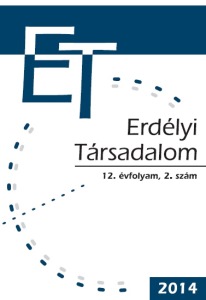„Félünk, hogy miattuk hazaküldenek minket is”: Elias „beágyazottak és kívülállók” figurációjának különböző szintjei a Magyarországról kivándorolt (..)
„WE FEAR THAT IT IS THROUGH THEM THAT THEY WILL SEND US HOME”: THE INTERPLAY BETWEEN DIFFERENT LEVELS OF ESTABLISHED AND OUTSIDER RELATIONS (...)
Author(s): Judit DurstSubject(s): Social Sciences
Published by: Presa Universitara Clujeana
Keywords: Established and Outsiders, Figurational Th eory, Migration, Roma, Mechanisms of Distinction, Migration to Canada and to the UK
Summary/Abstract: This paper examines how applicable is Norbert Elias’s established-outsider figurational theory for explaining the situation of Hungarian Roma migrants in Canada and in the UK. It explores how this theory can contribute to our understanding of the exclusionary „stranger-making” attitudes towards Roma in the examined two settings, not only from the part of the host society, but also among Roma migrants themselves. Through outlining the first results of a pilot study of a long-run migration study, based on ethnographic fieldwork in a Canadian metropolis and a British industrial city, the paper illustrates the interplay of different levels of established outsider figurations. It demonstrates the process through which a fi rst ’invisible’ minority group becomes a ’visible’ migrant group, perceived as a threat for the host society’s security and well-being. After outlining the latest chapter of the Canadian and British migration stories of the Hungarian Roma people, the paper concentrates on how the Roma migrants themselves construct their own discriminatory and exclusionary mechanisms inside their own group. They separate the „lowest of the low” group of the Gypsies – called „scavanger” or „Vlah Gypsies – from themselves in their fear of being lumped together with the latter, and as a result never reaching the desired ’established’ position.
Journal: Erdélyi Társadalom
- Issue Year: 12/2014
- Issue No: 02
- Page Range: 35-54
- Page Count: 20
- Language: Hungarian

